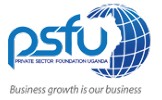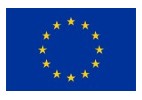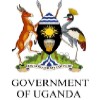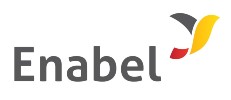Several private sector players have benefited from an impactful training on electronic procurement aimed at improving knowledge and awareness by state agencies, service provides and private sector on the electronic Government Procurement (eGP) to increase their chances of transacting business with government.
The two-day trainers of trainers (TOTs) on eGP and other online procurement procedures took place at the Uganda Institute of Information Communication and Technology (UICT) training in October 2022 and was organized by the Private Sector Foundation (PSFU) in partnership with the Public Procurement and Disposal of public Assets (PPDA). The training is supported by the European Union (EU) through ENABEL to PSFU.
In 2021, government rolled out the eGP system to provide a platform for increased transparency in procurement procedures and practices and thus improving efficiency as one of the measures to reduce corruption while increasing transparency, efficiency and accountability.
So far, only 6,000 players are registered on the electronic system out of over 40,000 businesses and individuals capable of registering. According to Job Kijja, an E-governance expert with PSFU, private sector players have been finding it difficult to work with government due to corruption surrounding the procurement process. He said that the training focused on accrediting a total of 40 TOTs who will then work with PSFU to conduct trainings of companies and business representatives on the eGP system who will then train about 200 others and cascade downwards.
“Currently, majority of the private sector players are unable to supply government due to lack of knowledge on how to log on to the eGP system. This has failed the majority of them to transact business with the government,” he said.
eGP is an initiative by government to improve transparency in procurement as well as ease access to government services.
“With electronic government procurement, a lot of paperwork is reduced meaning that we are also supporting the green economy as we reduce the hustle of putting the different requirements together. In addition to reducing facial contacts, e-GP cuts down chances of bidders and actors of government to negotiate kickbacks and bribes which reduces corruption in the country,” he said.
The TOTs trained are from different institutions and association that do procurements such as Peace and Justice Commission, Institute of Public Procurement of Uganda (IPPU), and Uganda Tourism Association and business entities who are members of PSFU among others.
“With initiatives like this, we hope to have a boost in terms of getting more companies on board and perhaps by the end of the year, we shall have many on board,” he said.
Another challenge facing fast adoption of eGP is low access to the internet as well as high costs of internet. “NITA and Ministry of ICT have done commendable job in establishing infrastructure but the challenge is that the infrastructure is not yet utilized to the maximum. There is need to encourage people to get online because e-government procurement is done online if we are to archive the 40,000 target of registered companies,” Kijja said. Patrick Odida, the membership committee chairman at IPPU noted that as government rolled out eGP, much efforts were put on government entities compared to private sector yet these are the biggest component in service delivery. “Since the biddings have to be done online by the service providers, the training comes in handy considering the transaction of procurement between the buyer and seller,” he said.




